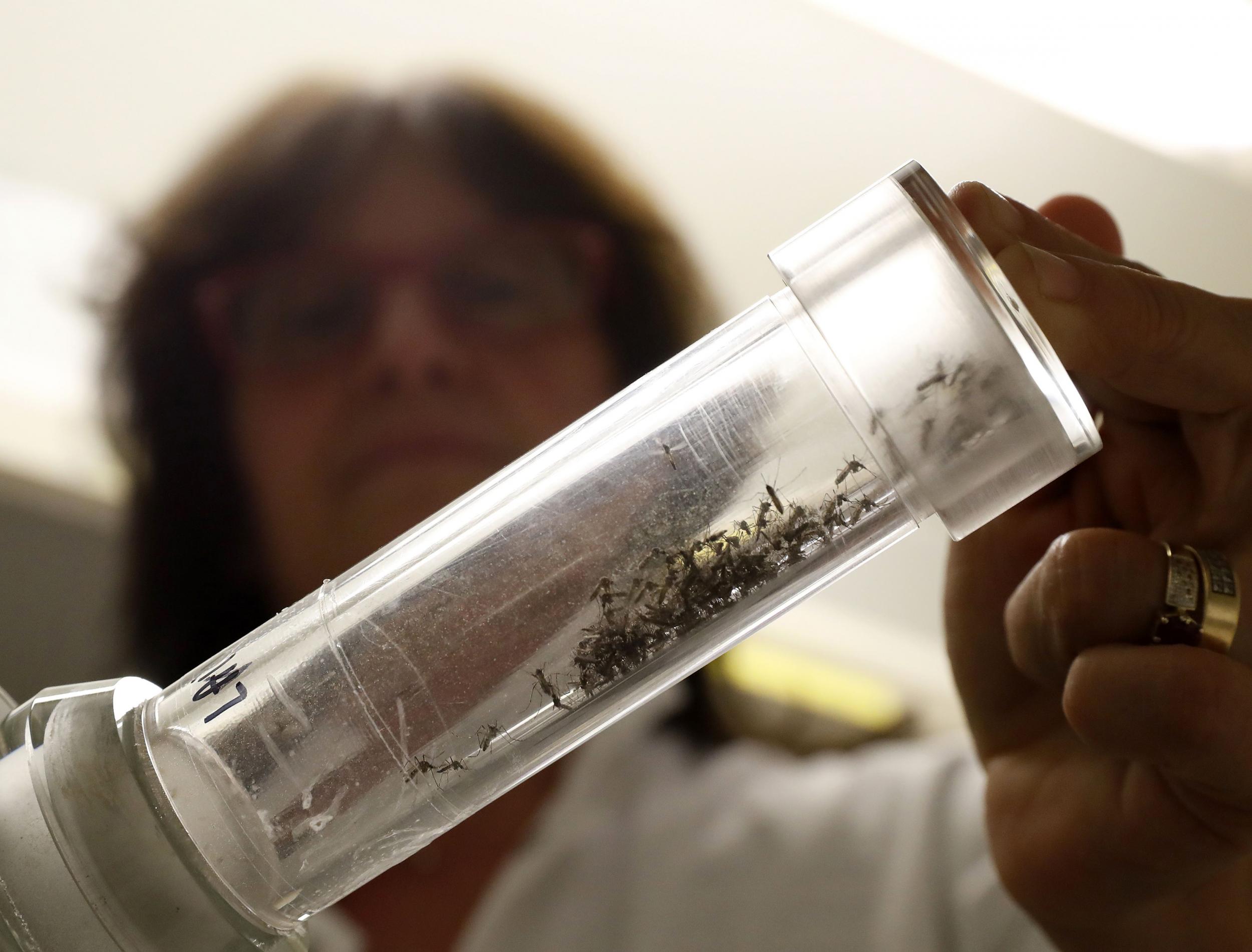Florida fights Zika virus by releasing thousands of bacteria-infected mosquitoes
Wolbachia stops the eggs of disease-carrying female Aedes aeqgypti mosquitoes from hatching

Your support helps us to tell the story
From reproductive rights to climate change to Big Tech, The Independent is on the ground when the story is developing. Whether it's investigating the financials of Elon Musk's pro-Trump PAC or producing our latest documentary, 'The A Word', which shines a light on the American women fighting for reproductive rights, we know how important it is to parse out the facts from the messaging.
At such a critical moment in US history, we need reporters on the ground. Your donation allows us to keep sending journalists to speak to both sides of the story.
The Independent is trusted by Americans across the entire political spectrum. And unlike many other quality news outlets, we choose not to lock Americans out of our reporting and analysis with paywalls. We believe quality journalism should be available to everyone, paid for by those who can afford it.
Your support makes all the difference.Thousands of mosquitoes have been infected with a bacteria that will stop them reproducing and released in Florida Keys, in a bid to prevent outbreaks of mosquito-borne diseases including Zika virus.
The Mosquito Control District set free 20,000 male Aedes aeqgypti mosquitoes, after company in Kentucky manually injected each one with Wolbachia bacteria.
When the infected male mosquitoes mate with females, the eggs they produce will not hatch.
It is hoped the 12 week field trial on Stock Island, just north of Key West, will reduce or eliminate the population of female mosquitoes, which bite humans transmitting diseases like Dengue fever and Chikungunya, as well as Zika.
"The eggs never even hatch," said Stephen Dobson, founder of Mosquitomate, which injected the creatures.
The infected mosquitoes were flown in cardboard tubes — similar to ones used in paper towel rolls — from Lexington, Kentucky, to Key West.
At the 25 acre test site district staff released them by shaking or blowing into the tubes, said Andrea Leal, the district's executive director.
"They liked the humidity," Ms Leal said. "They were very happy mosquitoes."
The trial is expected to last about three months, with twice-weekly releases. Seven Wolbachia-infected males should be released for every one wild male to drive down the mosquito population, Mr Dobson said.
To date, 5,238 cases of Zika virus have been reported in the continental US and Hawaii, according to the Centre for Disease Control and Prevention (CDC).
Less than 300 reported cases were locally transmitted and in the continental US all of those occurred in Florida and Texas. Most people were infected while travelling to areas where the virus is more prevalent.
One in 10 Zika-infected mothers had babies with related birth defects in the United States last year, according to the CDC.
“A successful trial with the Wolbachia-infected mosquitoes could mean the availability of a new tool in the fight against the Aedes aegypti mosquito for not only our District, but for Mosquito Control Districts around the country,” Ms Leal told CNN .
"We're looking at these sterile insect techniques because our conventional mosquito control methods are costly and labour-intensive," she added.
Stock Island is about 130 miles southwest of Miami, where Aedes aegypti mosquitoes were blamed for spreading the Zika virus last year.
Officials are still considering a separate test of mosquitoes genetically modified by the British biotech firm Oxitec to produce Aedes aegypti offspring that die outside a lab.
The US Food and Drug Administration initially approved a trial in a residential neighbourhood near Key West, saying the test would not significantly affect the environment, but outrage from anti-GMO activists and residents forced the district to find a new location.
The FDA is currently seeking public comment on a proposal clarifying which mosquito-related products it regulates and which ones would be regulated by the EPA, which has stalled progress.
Mr Dobson said he hopes the regulatory issues will be resolved quickly, so that mosquito controllers will have more tools to keep the viruses carried by invasive mosquito species from spreading, and more flexibility to address the public's concerns about human health.
"It might be in some places that people will say, 'We don't want Wolbachia,' or they'll say, 'We don't want GMO,' or they'll say, 'We don't want planes spraying overhead,'' Mr Dobson said.
Additional reporting by Associated Press
Subscribe to Independent Premium to bookmark this article
Want to bookmark your favourite articles and stories to read or reference later? Start your Independent Premium subscription today.
Join our commenting forum
Join thought-provoking conversations, follow other Independent readers and see their replies
Comments